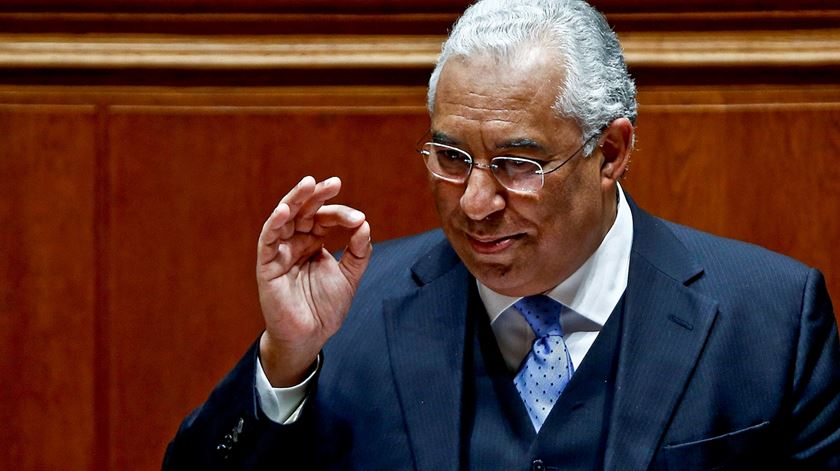Portugal has turned its economy around, slashing the deficit and creating jobs. This should boost investor confidence, but the rating agencies will not take Lisbon off the junk pile so easily.
Portugal is no longer in breach of EU deficit rules and has left behind the excessive deficit procedure (EDP), in which it had been trapped for the past eight years. This was recently announced by EU Commissioner for Economic and Financial Affairs Pierre Moscovici.
This moment represents a turning point in the economic situation of the country, but oversight is required in order to secure the achievement. “Today the exit of the EDP leads us into what is the preventive arm of the treaty, in which we have to maintain a rigorous trajectory in the public accounts and to make a more efficient use of public spending,” said Portuguese Finance Minister Mário Centeno, who became part of António Costa’s Socialist government in October 2015 amid criticism from the overthrown right-wing opposition.
Costa’s left-wing government took power in October 2015, after ousting the Social Democrats (PSD) in coalition with the Popular Party (CDS-PP), following a censorship motion in parliament. Costa, the former mayor from Lisbon, vowed to reset wages and pensions as well as to reverse the austerity cycle that had pushed the country to its knees. Many deemed this coalition a failure, as it seemed, at first glance, unworkable – but significant progress has been achieved since the Socialist Party, backed by the left, took control over the country.
In 2011, Portugal had to borrow more than €70 million from the EU and the IMF in a daunting attempt to avoid insolvency. The years that followed were of great social and economic unrest but Portugal’s economy seems to be healing.
Effective taxation
In 2015, Portugal’s public deficit reached an alarming 4.4% of GDP but the government effectively reversed the spiral with measures such as tax increases on alcohol and tobacco, high-value real estate, vehicles and vacation rentals, as well as by introducing a “sugar tax” on soft drinks. Furthermore, fuelled by a booming tourism industry and a rise on exports, Portugal saw its deficit fall underpinned by an increase of confidence and private consumption.
According to the spring forecast released by the European Commission last week, “Portugal’s economic growth is set to rise further in 2017 before easing off in 2018. The labour market is also expected to improve with unemployment falling from 11.2% in 2016 to 9.2% in 2018. After turning out at 2.0% of GDP in 2016 the general government deficit is set to remain below 2% over the forecast horizon.”
The government has successfully reduced the deficit to 2% of GDP in 2016, well below the 3% defined by the Maastricht Treaty, and the lowest since Portugal joined the eurozone in 1999. Additionally, Portuguese authorities have guaranteed that work on the stabilisation of the public debt will continue as the recapitalisation of the bank Caixa Geral de Depósitos (CGD) is still underway – yet this did not influence the Commission’s decision as the injection of capital is not supposed to be accounted for in the deficit.
The executive is hopeful of a positive turnout for next year’s budget. A growth rate of 2.8% was registered after the first three months of 2017 and an increase to 3.2% is expected by the end of the year, according to President Marcelo Rebelo de Sousa. Additionally, Centeno told Reuters that “the government’s message is that economic growth is strong and sustained, and it is accelerating. The fact is that we are converging with the European Union, we are finally converging.”
Public debt
However, Portugal still carries a high general public debt as a proportion of GDP; it rose slightly to 130.4% in 2016, mainly due to higher issuance of government debt for the ongoing recapitalisation of the state-owned bank CGD. However, the ratio is forecast to decline to 128.5% in 2017 and to 126.2% in 2018, due to primary budget surpluses and continued economic growth.
The government’s reaction
According to PM Costa, despite significant gains the budgetary margin is still too narrow for better salaries and public services.
Brussels validated the work of the Socialist Party, the major party in government, thereby giving it the legitimacy to continue its endeavours. The remaining left parties in power – the Left Bloc, the Communist Party and the Greens – are delighted with the significant gains achieved in the country – the meaningful exit from the Excessive Deficit procedure – while reiterating the necessity for a better redistribution of the country’s wealth through better salaries and public services. To this, Prime Minister Costa replied that despite the financial release the budgetary margin is still narrow.
What’s next?
With a better reputation, leaving the corrective arm for the preventive arm enshrined in the Stability and Growth Pact, Portugal is eyeing the rating agencies, hoping for an upgrade. Indeed, with Portugal leaving the corrective arm – a model designed by the EU to guide member states in correcting their public finances – to the preventive arm – a similar model, yet based on economic and financial surveillance to ensure the continuation of stability – rating agencies may look at the country with fresh eyes: new investment opportunities might be just over the horizon.
Although the recent accomplishments do not signal an imminent rise in the country’s investment rating and agencies anticipate several difficulties in the near future, the rating agency Moody‘s notes that the evolution of the budgetary situation and Brussels’ recent decision will have a “positive impact” on the confidence of future investors.
Having junked Portugal at the height of its crisis seven years ago, Moody’s currently ranks Portugal’s debt at BA1 – one level below investment grade. Nevertheless, an upgrade is not on the cards in the foreseeable future.



